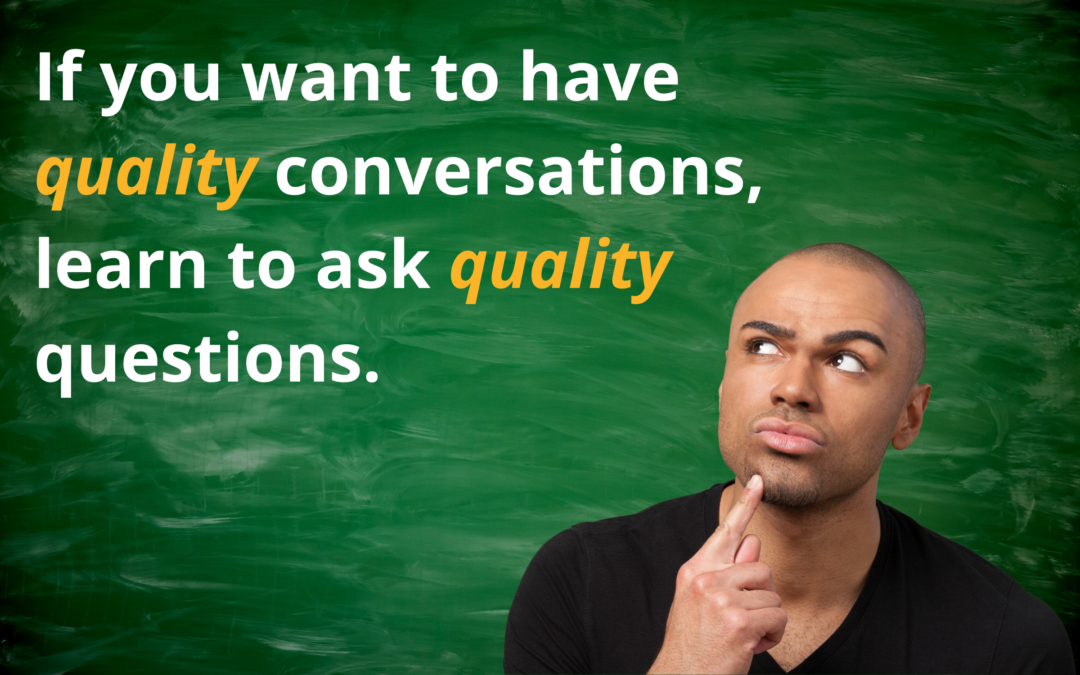…Ask terrible questions or none at all, and they’ll be looking for the exit.
Skillful questioning yields important information, builds strong relationships, and can help you make remarkable first impressions.
Notice the word “skillful.” Not just any question will do, however – relevance, tone, timing, and phrasing all matter.
The good news? Anything that’s a skill can be learned and improved.
Let’s get into it, shall we? (“Yes” frame question.)
1 – “Yes” or “Framed” questions.
Yes, framed questions, make great openers for rapport building and setting a positive tone for the conversation.
“You’re my 2-o-clock right?” “YES!”
“And you found the place ok?” “YES!”
“Ready to get started?” “YES!”
2 – Open-Ended Questions
Open-ended questions encourage people to open up and provide insight through broader and deeper conversation. They can’t be answered with “yes” or “no.”
“How do you feel about____?”
“What are your thoughts on____?”
“Tell me about the last time you____?”
3 – Pattern interrupt questions.
These help pull someone out of a repetitive loop, redirect energy, and reset the conversational tone. This one isn’t about listening. It’s about redirecting. A more subtle version of “WHAT’S THAT OVER THERE?”
“I’m sorry, I’m distracted by your shirt. I love it, where did you get it?”
“Wait, I’m suddenly remembering you said you were a Dodgers fan. Did you catch Scherzer’s 3000th strikeout?”
“Enough about me, let’s talk about you, shall we?”
4 – Funneling Questions
Used in a series, this line of questioning starts broad then get’s more specific. Great for warming someone up then digging deep. This is a quick and effective way to build relationships through conversation with substance.
“Tell me why you work out…”
“…and why is that important to you?”
“…and if we achieved that together, how would that feel?”
5 – Engagement Questions
Better known as rhetorical questions. These are statements phrased as questions to keep the listener engaged. Regular statements don’t require mental engagement. Rhetorical questions nudge the listener to process, then agree with you.
“It feels great when we’re consistent with our workouts doesn’t it?”
“It’s so freeing to feel like your body can do whatever you ask of it, right?”
BONUS – A lesson from polygraph examiner and dear friend, Dani H.
“Questioning reveals the truth through body language and tone. The verbal response is only part of the puzzle.”
People will absolutely give you signals to dig deeper…or stop. Remember to pay attention to the ENTIRE response.

